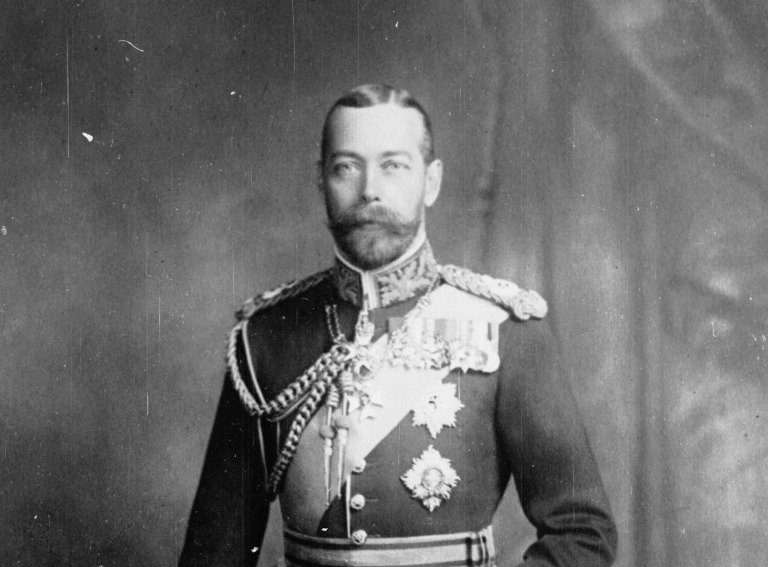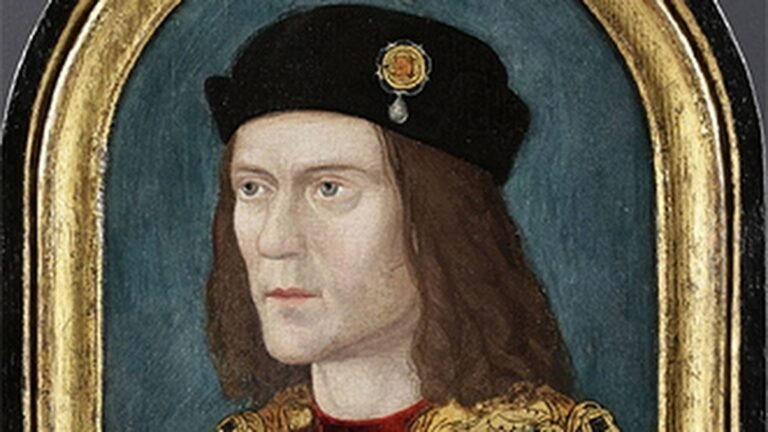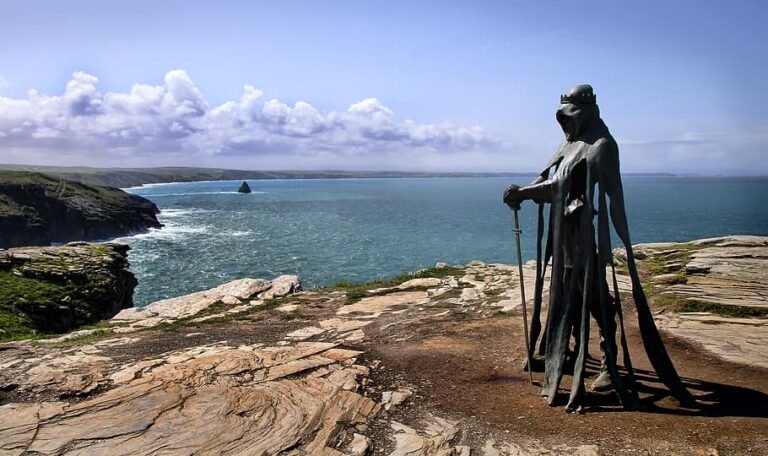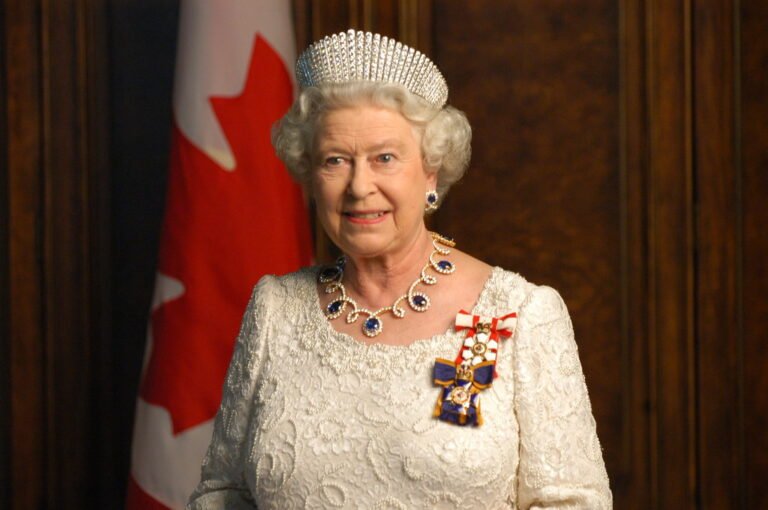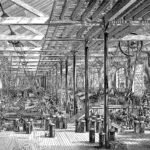George V was a significant figure in British history. His reign saw many changes and challenges.
George V, born in 1865, became king in 1910. His time on the throne included World War I and the beginning of the Great Depression. He was known for his dedication to duty and his ability to connect with his people.
George V played a crucial role in stabilizing the monarchy during turbulent times. Understanding his life and reign offers valuable insights into the history of the British monarchy and its evolution. This blog will explore the important aspects of his reign and his impact on British history.
Early Life And Education
George V, born on June 3, 1865, had a fascinating early life. He was the second son of Edward VII and Alexandra of Denmark. His upbringing and education were crucial in shaping his future as a king. This section delves into his family background and naval career, highlighting key moments that defined his early years.
Family Background
George V was born into the British royal family. His father, Edward VII, was the eldest son of Queen Victoria. His mother, Alexandra, was a Danish princess. This royal lineage placed George in a position of great responsibility.
Growing up, George lived in a strict yet loving environment. His parents ensured he received a well-rounded education. They emphasized the importance of duty, honor, and service to the nation. These values became central to George’s character.
Naval Career
George V’s education took a unique turn with his naval career. At the age of 12, he joined the Royal Navy. This decision was influenced by his family’s naval tradition. His time in the navy was formative. He traveled extensively, gaining valuable experiences and insights.
During his naval service, George developed leadership skills. He learned discipline and the importance of teamwork. These qualities later proved essential during his reign. His naval career also allowed him to connect with people from various walks of life.
George V’s early life and education laid a strong foundation for his future. His family background and naval career played crucial roles in shaping his character. They prepared him for the responsibilities and challenges he would face as king.

Credit: www.britannica.com
Ascension To The Throne
George V became king at a crucial time. His ascension marked the start of a new era. This period was filled with challenges and pivotal moments.
Succession Crisis
George V faced a succession crisis. His father, Edward VII, died suddenly. This unexpected event thrust George into the spotlight.
Many questioned his readiness. George’s quiet nature caused doubt. He had to prove himself quickly. The public watched his every move.
Coronation Ceremony
The coronation of George V was a grand event. It took place on June 22, 1911. Thousands attended the ceremony at Westminster Abbey.
The event showcased British tradition. George wore a magnificent robe. He held the royal scepter with dignity.
The ceremony reassured the nation. It symbolized stability and continuity. George V’s reign had officially begun.
World War I Era
The World War I Era was a challenging period for many nations. George V, the King of the United Kingdom, played a crucial role during this time. His leadership and decisions had a significant impact on the war and the people.
Role In The War
George V was deeply involved in the war effort. He visited troops on the front lines. His presence boosted their morale. He also supported various charities. These charities helped soldiers and their families. He worked closely with government officials. Together, they made important wartime decisions. His leadership was vital during this crisis.
Public Perception
The public had mixed feelings about George V during the war. Many admired his dedication. They appreciated his visits to the troops. These visits showed he cared about their well-being. Some criticized his actions. They felt he could do more to end the war. Despite the criticisms, his popularity remained strong. His commitment to the nation was evident. People saw him as a symbol of stability during uncertain times.
Reforms And Modernization
George V’s reign marked a period of significant change. He introduced several reforms that modernized the British Empire. His efforts brought about political and technological advancements. These changes aimed to improve the lives of his subjects and to strengthen the empire.
Political Reforms
George V played a key role in political reforms. He supported measures that expanded the electorate. This allowed more people to vote and participate in democracy. The Representation of the People Act 1918 was one such measure. It enfranchised millions of men and women. This act was a significant step towards equal voting rights.
He also helped in the establishment of the Irish Free State. This was a major political development. It marked the end of British rule in most of Ireland. George V’s involvement in these reforms showed his commitment to political modernization.
Technological Advancements
During George V’s reign, technology advanced rapidly. He embraced these changes and supported their implementation. The advent of radio broadcasting changed communication. It allowed information to reach people faster. George V’s Christmas broadcasts became a tradition. They connected the monarch with the public directly.
He also witnessed the rise of aviation. Air travel became more common and practical. This had implications for both domestic and international affairs. The British Empire used these advancements to improve transportation and communication. George V’s support for technology highlighted his forward-thinking approach.
Family And Personal Life
George V, the second son of Edward VII and Queen Alexandra, led a distinguished life. As a monarch, he was dedicated to his duties. Outside his royal responsibilities, his family and personal life were equally significant. This section delves into his marriage, children, and personal interests.
Marriage And Children
George V married Princess Victoria Mary of Teck, known as Queen Mary. Their union began on July 6, 1893. The marriage was strong and supportive. Together, they had six children. These children were Edward VIII, George VI, Mary, Henry, George, and John. Each of their children played a role in the royal family. Edward VIII and George VI became kings of the United Kingdom. Their daughter Mary also served in various royal duties.
Personal Interests
George V had a passion for philately, the study of stamps. He built one of the world’s most extensive stamp collections. He also enjoyed outdoor activities like hunting and fishing. These hobbies provided him relaxation and joy. George V had a deep interest in naval affairs. Before becoming king, he served in the Royal Navy. This experience influenced his leadership and decisions as a monarch.
Challenges Faced
George V faced many challenges during his reign, including World War I and political changes. His leadership helped navigate these difficult times.
George V faced numerous challenges during his reign as King of the United Kingdom. These challenges were not just political but also economic, affecting various aspects of life in the British Empire. Let’s delve into two significant areas where George V encountered substantial hurdles: Irish Independence and Economic Struggles.
Irish Independence
Irish Independence was one of the most pressing issues during George V’s rule. The quest for Irish self-governance had been simmering for years, but it reached a boiling point in the early 20th century.
Have you ever been in a situation where you felt torn between two sides? George V found himself in such a predicament. He had to balance the demands of Irish nationalists with the pressures from British loyalists.
The Easter Rising of 1916 was a pivotal moment. It was a rebellion that aimed to end British rule in Ireland. The British government’s response was harsh, leading to further unrest. By 1921, the situation had escalated to the point where the Anglo-Irish Treaty was signed, leading to the creation of the Irish Free State.
Economic Struggles
Economic struggles were another significant challenge for George V. The world was changing rapidly, and the British economy faced multiple pressures.
World War I had a devastating impact on the economy. The war drained resources and left the country in debt. Do you remember a time when you had to manage finances carefully? Imagine doing that on a national scale.
Post-war, the Great Depression of the 1930s added to the economic woes. Unemployment rates soared, and many families struggled to make ends meet. George V’s reign saw efforts to revive the economy, but the challenges were immense.
Both Irish Independence and Economic Struggles tested George V’s leadership in different ways. They required careful negotiation, strategic decision-making, and a deep understanding of the issues at hand. How would you have navigated such complex scenarios?
Legacy And Influence
George V reigned during a time of great change. His leadership left a lasting mark on the British monarchy and culture. This post explores his enduring influence.
Impact On Monarchy
George V helped modernize the monarchy. He steered the royal family through World War I. This was a challenging period. His efforts to support the troops boosted morale. He also changed the royal family’s name to Windsor. This strengthened their British identity.
George V promoted stability. He believed in duty and service. His dedication set a high standard for future monarchs. Many traditions followed today started during his reign.
Cultural Contributions
George V had a passion for stamps. He created one of the world’s best collections. This hobby earned him respect among philatelists. His influence extended to the arts as well. He supported British museums and galleries.
He also played a role in broadcasting. During his reign, the first royal Christmas message aired. This tradition continues today. It connects the monarchy with the public. George V’s contributions to culture and tradition remain significant.
Final Years And Death
King George V ruled the United Kingdom from 1910 to 1936. His final years were marked by significant health struggles. The King’s declining health affected his ability to rule. Despite his ailments, he continued his duties as best as he could.
Health Issues
George V faced numerous health issues during his reign. He suffered from chronic bronchitis and other respiratory problems. These ailments were likely caused by his heavy smoking. In 1928, he fell seriously ill with sepsis. His condition was so severe that the Prince of Wales took over some royal duties. By the early 1930s, his health had deteriorated further. He often needed oxygen to breathe.
Nation’s Mourning
George V passed away on January 20, 1936. His death marked the end of an era. The nation mourned deeply for their beloved King. His funeral was attended by many dignitaries from around the world. The King’s passing left a significant impact on the British public. People remembered him as a steadfast and dedicated ruler.
FAQs
What Were George V’s Last Words?
George V’s last words were “God damn you. ” He expressed this after receiving an injection from his physician, Lord Dawson.
What Illness Did King George V Have?
King George V suffered from chronic obstructive pulmonary disease (COPD). He also had pleurisy and was treated for emphysema.
What Was George V Famous For?
George V was famous for leading Britain during World War I and modernizing the British monarchy.
What Happened With King George V?
King George V died on January 20, 1936. He suffered from chronic health issues, including lung problems.
Conclusion
George V was a pivotal figure in British history. His reign saw significant changes. He modernized the monarchy and navigated World War I. He was respected by his people. His legacy continues to influence the royal family today. Remembering his contributions helps us understand modern Britain.
His life reminds us of the importance of leadership and resilience. George V’s impact is still felt in contemporary society. His story remains relevant and fascinating for history enthusiasts.

